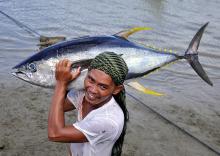Land Library
Welcome to the Land Portal Library. Explore our vast collection of open-access resources (over 74,000) including reports, journal articles, research papers, peer-reviewed publications, legal documents, videos and much more.
/ library resources
Showing items 1 through 9 of 63.Following the end of apartheid, South Africa’s government set itself ambitious goals with a planned land reform. However, there have since been barely any changes in the country’s agricultural structure, and the positive impacts that were hoped for on rural livelihoods have hardly materialised.
Family farms are especially well suited to meet the challenges of labour organisation in agriculture. In early stages of development, they play a particularly important role in creating productive employment for the major share of the population.
For a long time, the agricultural policies of the Mercosur states ignored family farming, focusing on promoting individual crops and export production instead. Rural development was not on the agenda. Only after the turn of the millennium did a process of rethinking set in.
Providing extension and advisory services is expensive. There are salaries to be paid, transportation and operational funds to be provided, buildings to be rented or built, demonstration plots to maintain, and continued education to be offered to the extension staff.
Publicly elected women representatives in India ought to take advantage of their influence to defend women’s rights.
Rangelands cover 30 per cent of the global land surface. They support a considerable share of the global ruminant value chains, are habitat for a high plant and animal diversity and have various ecological, economic and social functions.
The livelihoods of many rural dwellers are dependent on having secure and equitable access to land. Tenure security is also a prerequisite for sustainable land management. The massive interest of commercial investors has increased the pressure on land globally.
In order to adequately address the important role of soils and land for sustainable development, a holistic approach is needed.
Zimbabwe used to be well-known for its high-quality meat exports. The sector was hard hit by the economic crisis that set in during the 1990s and coincided with the impact of a failed land reform and recurrent drought.






